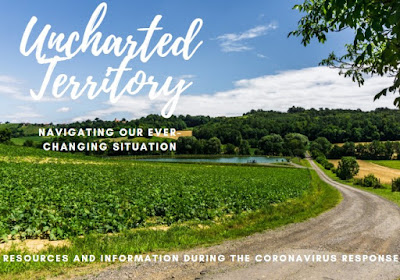The Adaptive Insights Team has completed the onboarding sessions in preparation for FY21 budget revision and FY22 budget development. During those sessions, departments and units were introduced to the basic navigation and functionality of Adaptive Insights and the three budget modules (GA Compensation, GA Non-Compensation, and GL Revenue) that are used for data entry during budget development. The team also familiarized attendees with eight pre-built reports to view budget and actuals data based on the familiar UFM format. Users will receive further support after their initial onboarding session, including Office Hours with UVA and Deloitte representation that will help answer questions around both Adaptive and the UVA budget process, and additional training sessions and resources. For more information, check out the AI Resources page on the FST website.
Phase 3 of FST saw a shift in scope for our governing bodies. The revised governance structure will more effectively operationalize the team and stakeholder's efforts, making sure individuals who are familiar with various levels of the organization are able to advise our leadership and the project team at the right time on matters within their expertise. The Executive Committee, the Leadership Council, functional owners, and project workstream leads are the decision-making entities in this structure, with the Steering Committee, Advisory Group, and Fiscal Administrators group (along with other stakeholders as needed) providing insight.
We are deeply appreciative of our governance groups for
collaborating with us through the first two phases of this journey, and for
sticking with us during a stressful and unexpected situation at the beginning
of Phase 3. You can read about the changes in detail on the FST website under the Governance tab.
We posted a Who’s Who, in terms of team structure, on the FST website. Visit the Team Structure page for a quick explanation of how the team is set up.
How are FST decisions made? All FST decisions are made using the RAPID framework, but formal RAPID documentation (as you saw with the recent decision to go with Workday Expenses in place of our current expensing system, Chrome River) is only required with Tier 1 and Tier 2 decisions. You’ll always be able to access that documentation in the Online Community. You can see more on RAPID and the tiers of decision-making and who’s responsible for what decisions, in this blog piece. In the spirit of transparency, we’ll share decisions in our normal communications channels when they are made, and we’re also working on a user-friendly decision log that will live on the FST website and be consistently updated
You may be wondering how the project timeline (and how that timeline
intersects with your work) has changed since the decision to extend the go
live date by one year. We’re pulling
that information together, and should have solid details to share with you by
the next blog digest or before.
Since the architect sessions are now complete, we are heading into a period beginning this fall called “Configuration & Prototype” where we will be taking the information and decisions from the architect sessions and building our first instance of Workday Financials. The project timeline has room for at least two prototype and validation periods. Because of our recent timeline extension, we may even have time for a third period of refinement and feedback.









